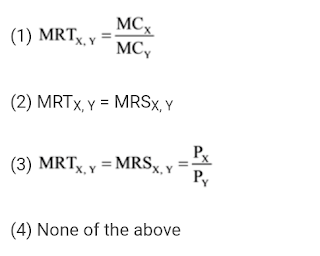100 MOST IMPORTANT TOPICS FOR NET EXAM
1. Phillips Curve Analysis
2.HDI and PQLI
3.Monetary Policy framework
4.Private, public and merit goods
5.International trade theories
6.Menu costs
7.Various approaches to supply of money
8.Pareto optimality
9.Games theory
10.Optimisation problem
11.Deadweight loss
12.Consumer surplus
13.LAC curve
14. Sampling methods
15. Regression analysis
16. Probability distribution
17.Kinds of budgetary deficits(current monetary figures)
18.Theories of development
19.Inflation and deflation
20.various models of business cycle
21. Components of BOP
22.Impacts and incidence of tax
23.Effects of taxation
24.Terms of trade
25. Arithmetic, Geometric and Harmonic mean
16.Important books and their authors
27. Revenue and Capital expenditure
28. Instruments of Money market
29.Cash balances and cash transactions approach
30. Peacock- Wiseman hypothesis
31. Financial,technological and social dualism
32.Rostow's Stages of economic growth
33.Theory of demographic transition
34.Opportunity cost theory
35. IS-LM model
36. Types of planning
37.Market failures
38.Equilibrium in various forms of Market
39. Probability
40.Demographic Dividend
41.Gender Budgeting
42. Theories of demand for money
43. IC Curve and IC map
44. Cobb-douglas production function
45. Types of multiplier
46. Ratchet Effect
47.Robinson Growth model
48. Accelerator and Multiplier interaction
49. Harrod-Domar model
50. Direct and Indirect tax
51.Crowding out and crowding in effect
52. ICICI, IRBI, IFCI, IDBI & Others
53. Types of Unemployment
54. Theories of Population
55. Relationship b/w AR, MR and Price Elasticity
56. Life table
57. Type 1 and type 2 error
58.Two-tailed and One- tailed Test
59.WTO agreements
60.Keyne's General Theory of Employment, interest and money
61.Income, price and substitution effect
62. Oligopoly models
63.Tobin tax
64.Types of index numbers
65.Nash Equilibrium
66.Slutsky Equation
67. Superio, Inferior and Giffen Goods
68.Shadow price
69. MPC, MPS and Multiplier
70. Basel Norms
71. Various approaches to utility
72. Surplus value
73. Giffen paradox
74. Methods of debt redemption
75.Golden age
76.Learning by doing
77. High powered money
78.Green GDP
79. IDA, IBRD, IMF, BRICS, SAARC & Others
80.Sustainable Development
81. Rational expectations Hypothesis
82. Hypothesis testing
83.Trade multiplier
84. Exchange rate concept
85.Liquidity aggregate
86.FRBM act
87. Fiscal policy
88.General equilibrium conditions
89.Social welfare function
90. Compensation principle
91.Theory of profits
92. Marshall theory of rent
93. Embodied and Disembodied technical progress
94.Engel curve
95.PCC & ICC
96.Relative income hypothesis
97. Permanent income hypothesis
98.Absolute income hypothesis
99. Life cycle hypothesis
100. RBI liquidity management mechanism


Comments
Post a Comment